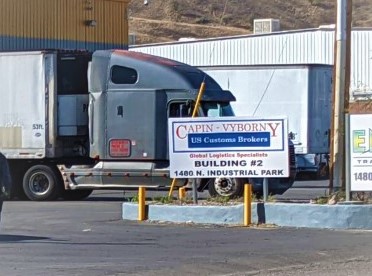Rethinking Warehousing Strategy
Retailers, manufacturing and logistics organizations are facing a new hurdle as they strive to store products to protect against supply chain disruptions: There is little to no room available to store the items in many places of the United States.
The newest consequence of pandemic-fueled boom in online shopping and manufacture capacity growth is a lack of commercial warehouse and industrial space, which shows no indications of subsiding.
Due to the competitive nature of the market, on-demand delivery is increasingly becoming a differentiation. For example, it wasn’t long ago that same-day delivery was unheard of. It has evolved from an “add-on” to something that many industries now expect.
Therefore companies must rethink and optimize their logistics and warehousing strategy. At the regional level this could mean localizing the storage accommodation, while at the international level the options could range from bringing closer to home offshore capacity to reduce risk and dependency, to taking advantage of the diverse types of specialized warehousing, such as bonded and Foreign-Trade Zone warehouses.
A Customs bonded warehouse is a facility or other secured area where dutiable goods can be stored, manipulated, or undergo manufacturing processes without incurring taxes or duties. Once the goods enter the warehouse, the warehouse owner and the importer are held liable under the terms of a bond. This liability generally expires when the goods are:
- Exported, or considered to be exported,
- Withdrawn for supplies to a ship or plane in international travel,
- Destroyed under the supervision of Customs,
- Departed for consumption into the U.S. after payment of corresponding duties,
- Enter an FTZ
A Foreign-Trade Zone is a secure area under U.S. Customs and Border Protection supervision where goods receive the same Customs treatment as if they were outside the commerce of the U.S. The intention of such zones is to help American enterprises to be more competitive in the global economy by lowering tariffs on imported foreign goods and on exported finished goods.
Similar in benefits to a bonded warehouse, a Foreign-Trade Zone additionally allows the products to be stored up to five years, before having to be moved out of the secured area.
At Capin Vyborny, we take great pride in continuing to help our customers excel at their supply chain strategy. This is why we have at their disposition the only Foreign-Trade Zone warehouse in the Nogales area, as well as different warehousing capabilities to suit any operation-specific and customs-compliance needs, at any of our facilities in San Diego, Nogales, El Paso, Laredo and Brownsville. Capin Vyborny Customs Brokerage & Logistics is a nationally licensed broker who serves clients from North America, Asia, Latin America, and Europe. With ability and experience providing service and transport through any U.S. Customs port of entry. Capin Vyborny’s physical presence and warehousing across the entire southern U.S. border provides specialized help and relationships for cross U.S.-Mexico trade. For any questions or inquires please contact us at 520-281-2066 or contact@capin-vyborny.com.
A personalized approach founded on service.


